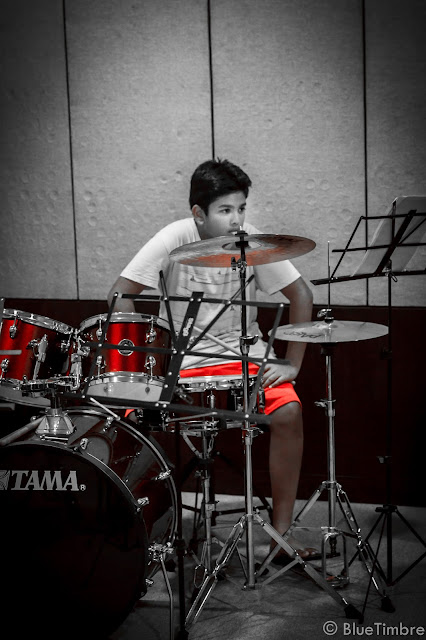Are you the few ones who
are eager to learn a music instrument but torn between which instrument to pick
up? You want to emulate your idol and play like them? Or you want to compose
your own music but not sure about which instrument will help you realising your
dream?
Here is our guide to the various factors to consider while choosing an instrument to begin your Music Journey.
1. Your Interest
First of all, what interests you? What are the
kind of songs that you love to listen to and would love to play yourself? Which
instrument excites you the most? This can help you decide which instrument
would best suit you. Piano/Keyboard is very versatile and can help you
compose without any limitations, whereas Guitar is the most compatible
instrument you can learn. Drums would take some space but if you are a fan of
hard hitting, letting your groove out on a beat, that’s the instrument for you.
There are certainly many other instruments, but let’s talk about the common and
popular ones. It completely depends on what you are looking for through music.
You could learn vocals if you enjoy singing your heart out and humming to tunes.
2. Preference of Music Genres
If you are into Rock and Roll, Guitar might be
the most popular choice but if you want to create rocking beats, you might as
well go for Drums. Or, You are in to Pop, or electronic music, then Piano or
Keyboard is the smartest choice for you. If lyrics is what interests you most, then Vocals is a good choice. Every genre of music is dominated by
an instrument or two, so do the research on your favourite songs and artists,
learn about the process of making and you might discover love for a particular
instrument. Which part of your favourite song would you like to imitate or
learn? That will let you know what you really want to learn and play.
3. Practice Limitations
Before you begin to learn an instrument, map out
your schedule. See, how you would manage the time for your regular
activities and learning an instrument. Understand how much time you can dedicate to
learning an instrument, what kind of space you have for practice? If you are
learning drums, make sure you have the space to set up your drum kit and insulate
your room with basic sound proofing so that neighbours aren’t disturbed. Also, if you are eager to learn
vocals, you have to practice in a room where you can move around and sing with
a loud open voice. There are many affordable ways to soundproof your room, a lot of information is available online for the same. At the beginner level, learning guitar may
take some time, so make sure you have the time to regularly practice guitar.
Keyboard/Piano are relatively easy in the beginning, however as you advance
through higher levels, you will have to give time for any instrument to master
the skills that is required to play the instrument to its fullest capability.
4. Budget
Different instruments would cost you varying amounts.
Although this shouldn’t be the deciding factor that prevents you from learning the instrument you want to, we will still discuss different instrument cost.
The cheapest would be learning vocals as it doesn’t require any instruments in
the beginning, as you begin to perform regularly, you might want to buy a
microphone that would help you understand the dynamics of singing on a mic.
Guitars can be very affordable, especially in the recent times with big brands
producing low budget guitars with very decent quality, and it can serve you for
a long time as well. Pianos are costly, however keyboards can be found in
affordable prices but to get a good quality, long lasting instrument, you might
have to cash in a little bit, but for composers, this is must have! The costliest of all the beginner instruments is the drums. Although you can easily purchase pre-owned affordable drum sets, if you are looking to invest, this is an instrument that will
last for a long time. As we discussed, budget should not be a factor in deciding what
instrument you want to learn, as the investment you are making will serve you
for far more benefits than loss if you are really interested in learning and
playing the instrument. One thing is for sure, if you have the desire to learn,
you will not regret doing the investment on the instrument you would love to
learn.
We hope these factors will help you take an informed decision about what instrument you decide to learn. Whether it is enjoying playing your favourite tunes, jamming with friends at a party, becoming a professional musician or sound engineer; one thing we can assure you is that you will never regret learning music. So, don't wait, choose the instrument your heart desires and begin your Musical Journey today!
BlueTimbre is a unique Music Company that provides Music Education and Recording Studio services. BlueTimbre also works with schools to provide end-to-end Music Education solutions for schools.
The BlueTimbre team comes with decades of cumulative experience in running Structured Businesses, Music Curriculum Development, Music Education and Performance.










